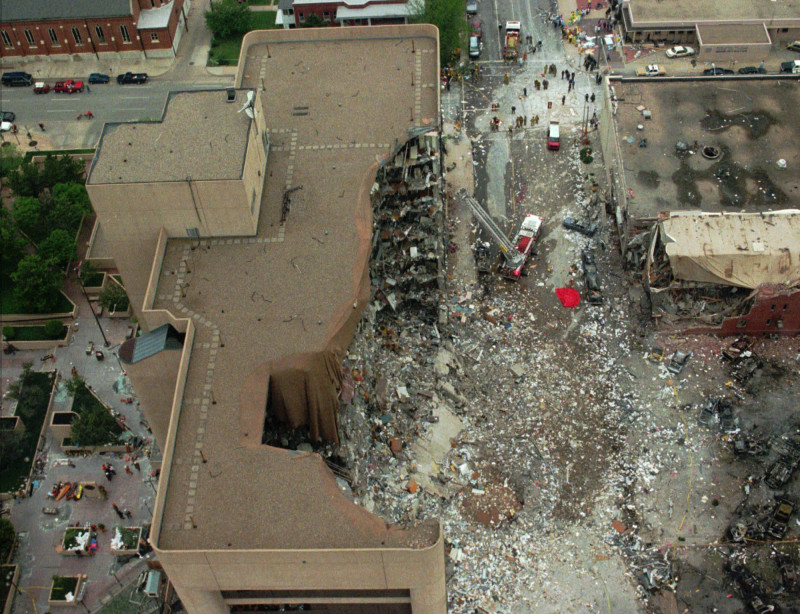The Oklahoma City bombing remains the deadliest act of domestic terrorism in U.S. history, killing people—including children—and injuring hundreds more on April, 199. Timothy McVeigh, a Gulf War veteran radicalized by anti-government extremism, detonated a truck bomb outside the Alfred P. Murrah Federal Building, targeting agencies he blamed for the Waco siege.
President Bill Clinton’s immediate address to the nation condemned the attack as “an act of cowardice” and vowed swift justice. His emotional memorial speech days later, though not widely ranked among history’s top orations, became a defining moment of national unity. Clinton’s call to resist division—emphasizing that “the anger you feel is valid, but you must not allow it to consume you”—resonated deeply as rescue crews combed the rubble.
Three decades later, the anniversary highlights enduring lessons. The attack exposed violent anti-government sentiments simmering in the 1990s, a tension some argue parallels today’s polarized climate. McVeigh, executed in, cited extremist literature like The Turner Diaries as inspiration.
This year’s 30th-anniversary observance at the Oklahoma City National Memorial features remarks by Clinton, who has warned of recurring ideological threats. Survivors, families, and officials will gather to honor victims, with chairs symbolizing each life lost—a stark reminder of terrorism’s human cost.


